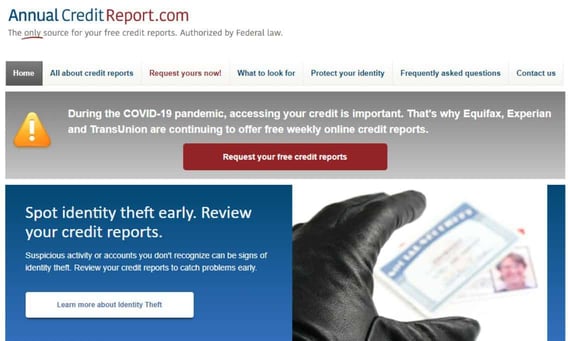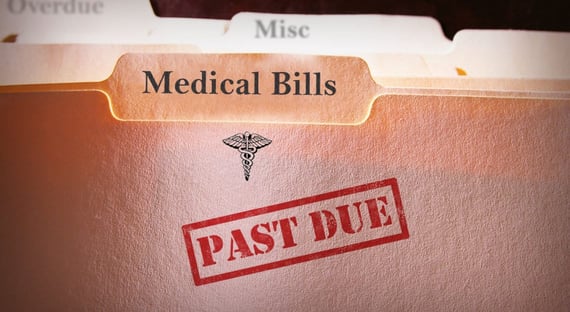
Criticizing the credit reporting agencies or the credit scoring companies is almost a national pastime. Nobody likes credit bureaus, credit scores are unfair, credit reports are polluted with errors and are impossible to correct. That’s the party line.
Well, I’m going to blow up all of these myths regarding the credit industry.
Over the past decade, the credit industry has made several meaningful consumer-friendly changes to how they function. Pretty much all of these changes have been entirely ignored because it’s not P.C. to do anything but be critical of everything having to do with consumer credit.
1. Free Weekly Credit Reports
2023 is the 20-year anniversary of the Fair and Accurate Credit Transactions Act of 2003 or FACTA. Among other things, FACTA amended the Fair Credit Reporting Act (FCRA) to give all of us the right to a free copy of our credit reports once every 12 months.
For example, if you were to pull your credit reports today, you would have to pay for them if you wanted to check them again at any time during the next 12 months.
Once every 12 months may have made sense in 2003, but it certainly doesn’t make any sense in 2023. And while the language in the FCRA still only requires that the credit bureaus provide us one free copy of our reports every 12 months, the credit bureaus have done better. When COVID became a thing, the credit bureaus decided to allow consumers to check their credit reports at no charge every week instead of every 12 months.

To be clear, going from once every 12 months to, hypothetically, up to 52 times each year was a choice made by the credit bureaus. It was not forced upon them by some state or federal law.
And while you may be thinking, “I should have access to my credit reports whenever I want to see them” (and I would agree with you), name another company or industry that gives away their core product to everyone in the United States 52 times each year. Incidentally, you can claim your free reports every week at www.annualcreditreport.com.
2. Missed Payments Recieve a 30-Day Reporting Grace Period
It’s not uncommon for late payments to be reported by lenders to the credit bureaus. That has been a reality for decades. And, as long as those late payments are accurate, they can remain on your credit reports for up to seven years, thanks to the FCRA.
But there is a little-known grace period hidden in the 350+ pages of the credit reporting industry standards that protect consumers who have those periodic lapses and forget or can’t make payments by their due dates.
For example, let’s say you have a credit card account and your payment is due by the 15th of the month. We’d all agree that as long as you make your payment on or before the 15th that you’re in good shape. I think we’d also agree that if you do not make your payment by the 15th, you’re late, delinquent, and past due.
That’s all bad news because your card issuer can assess a late fee and take other punitive actions against you, including reducing your credit limits or closing your account.
The good news is the credit reporting industry has a long-standing requirement that lenders cannot report late payments to your credit reports until you are a full 30 days past your due date. So, using my above example, if your payment is due on the 15th of the month and you don’t make your payment until, say, the 10th of the following month, you won’t end up with a late payment on your credit reports because the account isn’t a full 30 days past due.
There is no systemic method for reporting someone as being 1-29 days past due. It doesn’t exist. That means out of the hundreds of millions of credit reports housed by Experian, Equifax, and TransUnion, not a single one of them includes a record of someone being 1-29 days late on any account.
This 30-day grace period is a choice made by the credit bureaus. It was not forced upon them by any state or federal law.
3. No More Tax Liens or Judgments on Credit Reports
In mid-2017, the credit reporting agencies made the decision to remove tax liens and judgments from credit reports. Those public records had been on credit reports for decades. And credit scoring models like those built by FICO consider liens and judgments to be derogatory entries that can harm a consumer’s credit scores.

The explanation given had to do with liens and judgments accidentally appearing on the wrong consumer credit reports, so it was better to just remove all of them. And, of course, by removing public records from credit reports, some people’s credit scores improved.
The decision to remove these public records was another choice made by the credit bureaus. It was not forced upon them by some state or federal law.
4. Credit Scores Are Protected During the Investigation Process
The FCRA gives all of us the right to challenge, within reason, information on our credit reports we believe to be inaccurate. If we file disputes, the credit bureaus are obligated to perform an investigation into our claims of inaccuracy. That investigation generally involves communicating with the company that reported the information in the first place, which is normally a lender or debt collector.
During the investigation process, it is not uncommon for the allegedly incorrect item to be marked as being disputed by the consumer. This is accomplished by either the credit bureau or the lender/debt collector reporting a dispute code along with the offensive item. This code may read “Consumer Disputes, Reinvestigation in Process” or some reasonable derivative of that phrase.
While that particular language/code is associated with an item on your credit reports, FICO and VantageScore’s credit scoring models will largely ignore it during the scoring process. To be more specific, any credit scoring metrics that consider payment history or balances will not consider the disputed item.
The reasoning behind this practice is that if the item is potentially incorrect, credit scoring models don’t want the consumer’s credit scores to be adversely affected. So during the investigation process, the scoring models essentially discount that item.
Once the investigation process is complete and the dispute coding is removed, the credit entry is fair game once again.
This is why it’s not uncommon for a consumer’s credit scores to increase during the dispute process. If the credit bureaus are actively investigating negative information or information regarding large credit card balances, that information is ignored because of this dispute coding.
This decision on how to consider (or not consider) items that are actively being investigated was made by FICO and was not forced upon the credit bureaus by state or federal law.
5. Reformed Medical Collections
Medical collections occur when you are unable to pay your doctors for services rendered. The debts go into default and are outsourced to third-party collection agencies. These collection agencies traditionally report the information to the credit bureaus, and you’re stuck with medical collections for the next several years. This is how it used to happen, but this has all changed.
First off, the last several generations of FICO credit scores have discounted the impact of medical collections. To be clear, discounted does not mean ignored. So even in the older versions of credit scores, medical collections were already less problematic to consumers.

VantageScore has already announced that in early 2023 its scoring models would be adjusted to ignore all medical collections, paid or unpaid. And FICO Score 9 and newer versions ignore all collections that have a zero balance, including medical collections.
But that’s not half of the story. The news keeps getting better for consumers.
As of July 2022, debt collectors cannot report medical collections to the credit bureaus until they are at least 12 months old. Medical collections with a zero balance have already been removed from credit reports. And unpaid medical collections will have to reach at least $500 to be reported. 2023 medical collections with an original balance of less than $500 will no longer be reported.
You can see the credit bureaus’ joint press release regarding these changes here.
These changes to credit scores and credit reports regarding medical collections were not forced upon FICO, VantageScore, and the three credit bureaus by state or federal law. They were all voluntary choices.
6. Disputes Are Resolved in About Two Weeks, Not 30 Days
The FCRA has long given the credit reporting agencies 30 days to complete the credit report dispute/investigation process. And there are even some scenarios whereby the credit bureaus are given an additional 15 days to complete investigations. So now we’re talking 30-45 days.
Having said that, disputes don’t take 30-45 days any longer. The credit reporting industry has adopted technology that makes the process much more efficient and expedited. Long gone are the days of faxing disputes back and forth or using the U.S. Postal Service to mail disputes to lenders and debt collectors.
In fact, according to the credit reporting industry, most disputes are resolved within 10-14 days. This doesn’t mean they are always resolved in the consumer’s favor. Between 50% and 60% of all disputes are filed by credit repair companies, so there are questions about the authenticity of those disputes. You would expect them to be largely rejected by the credit bureaus if they were attempts to get accurate information removed from credit reports.
Nonetheless, if you have a legitimate error on your credit reports and you’re in the process of applying for financing, you’re not going to have to wait 30-45 days for a resolution. It’s highly likely that you’ll be able to move forward with your application because the investigation process will be finished within a couple of weeks.
These changes to the credit report dispute process were not forced upon the credit bureaus by some state or federal law.
In Sum
If you’ve never heard anything about these afore-referenced policies and changes to the credit reporting and credit scoring systems, that wouldn’t surprise me. These aren’t the kinds of policy changes that garner a large amount of attention. It’s the data breaches and the errors in credit reports and allegations that credit scores are unfair that command the most attention.
Still, every single one of the above were voluntary changes made by either the credit reporting agencies or credit scoring companies. They didn’t have to do any of this. What their choices have yielded is a much more fair system and affordable or free access to your credit information with expedited dispute resolution.






